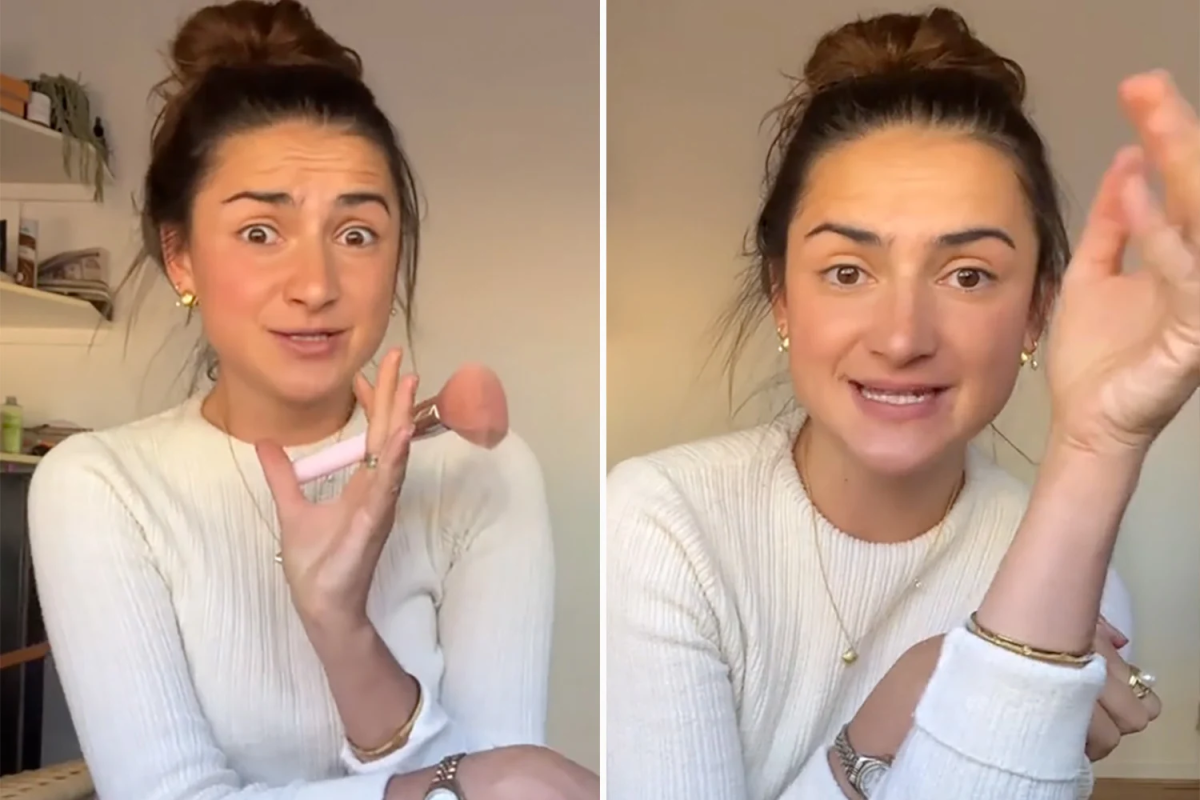
Grace Harris thought moving from Nashville to Australia would be a breeze.
She expected a few cultural quirks, maybe some slang to learn.
What she did not expect was to spark a national debate over a single word: toilet.
Her social media rant quickly went viral after she labelled the word 'toilet' as 'gross' and demanded Australians 'learn some manners.'
Harris’s preference for American euphemisms like 'restroom' and 'bathroom' clashed with Australia’s straightforward approach, igniting a conversation about language, culture, and the unique flavour of Australian English.
The roots of this linguistic clash run deep.
Australian English began forming when the First Fleet arrived in 1788, heavily influenced by British English, while American English evolved from the Pilgrims’ arrival in 1620 and adapted rapidly to the New World.
This two-century gap explains why Australian English retained more British structure, while American English diverged with different pronunciations, spellings, and a culture of euphemism.
'Australian English developed primarily from British English due to the historical colonization of Australia by the British'
Harris’s objection to 'toilet' highlights the cultural divide between directness and euphemism.
The word originates from the French 'toilette,' referring to washing and grooming, and has been acceptable in polite English since the 17th century.
American English’s turn to terms like 'restroom' or 'bathroom' reflects a social preference for indirect language.
Common vocabulary clashes between Australian and American English
Toilet vs Restroom/Bathroom
Car park vs Parking lot
Shopping trolley vs Shopping cart
Bin vs Trash can
Capsicum vs Bell pepper
Thongs vs Flip-flops
Jumper vs Sweater
Boot (of car) vs Trunk
Bonnet (of car) vs Hood
Many Australians defended their terminology, citing practical reasons.
One commenter pointed out, 'It's not a bathroom either because there's no bath or shower in most public toilets.'
This directness is emblematic of Australian communication—clear, unpretentious, and historically grounded.
Harris’s struggles extended beyond toilets.
Words like 'bin,' 'trolley,' and 'car park' revealed how deeply ingrained local vocabulary is and how small missteps can magnify feelings of cultural difference.
Misunderstandings around 'thongs' versus 'flip-flops' or 'jumper' versus 'sweater' illustrated how identical words can carry entirely different meanings across borders.
Accent and pronunciation differences also play a role.
Americans pronounce the letter 'r' distinctly, while Australians often drop the 'r' sound if it follows a vowel.
Words like bar, bear, jar, form, and bird sound noticeably different depending on the accent.
Cultural adaptation tips for expats
- Accept that linguistic differences reflect cultural history, not rudeness
- Focus on communication rather than 'correct' terminology
- Learn local phrases gradually rather than forcing change
- Understand that directness in language doesn't equal impoliteness
- Ask for clarification when confused rather than criticising local customs
Harris’s minor conflicts at work over saying 'what' instead of 'pardon' show that politeness expectations are culturally embedded.
In Australia, tone often matters more than precise wording, illustrating that direct language does not equate to impoliteness.
Everyday cultural quirks intertwine with language, such as the flat white versus drip coffee debate reflecting broader lifestyle differences.
Similarly, Harris’s confusion over the term 'fortnight' demonstrates how cultural references influence comprehension.
Harris’s comments remind us that adjusting to a new linguistic environment takes patience.
Australians may view American euphemisms as overly elaborate, while Americans might perceive Australian directness as blunt.
Both approaches are valid, reflecting cultural norms rather than manners.
Australians are adept at linguistic flexibility, mixing terms from both American and British English.
Whether saying gas or petrol, takeaway or takeout, locals can communicate effortlessly while maintaining clarity and cultural identity.
Australian English is a recognised endonormative variety, formalised in publications like the 1981 first edition of the #Macquarie Dictionary.
Speaking Australian English is not 'wrong'—it has a rich history and cultural significance.
Harris’s view that Australians need to 'learn some manners' overlooks the importance of linguistic diversity and the cultural stories behind our words.
Did you know?
Did You Know? What are today regarded as American spellings were popular in Australia throughout the late 19th and early 20th centuries, with the Victorian Department of Education endorsing them into the 1970s and The Age newspaper until the 1990s.
What This Means For You
Linguistic differences between American and Australian English reflect historical development rather than manners, showing that what might seem abrupt or unusual to an outsider often has deep cultural roots.
Australian directness is grounded in practicality and British English traditions, not a lack of politeness, which explains why terms like 'toilet' are used so matter-of-factly.
Vocabulary clashes—such as 'toilet' versus 'restroom' or 'jumper' versus 'sweater'—can easily confuse expats or international visitors navigating everyday conversations.
Successfully adapting to these differences relies on patience, careful observation, and respect for local language norms.
Recognising these nuances can make travel, working with international colleagues, or interacting with visitors far smoother and more enjoyable, while also fostering a greater appreciation for the rich history and charm of Australian English.
Have you ever felt lost in translation when travelling abroad, or struggled to explain local terms to visitors?







